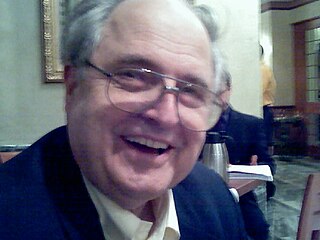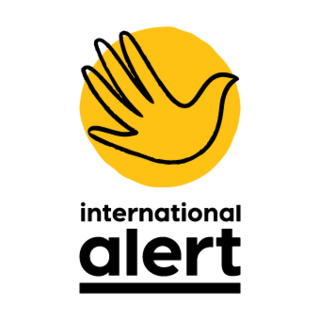Related Research Articles

An ultimatum is a demand whose fulfillment is requested in a specified period of time and which is backed up by a threat to be followed through in case of noncompliance. An ultimatum is generally the final demand in a series of requests. As such, the time allotted is usually short, and the request is understood not to be open to further negotiation. The threat which backs up the ultimatum can vary depending on the demand in question and on the other circumstances.
A case study involves an up-close, in-depth, and detailed examination of a particular case or cases, within a real-world context. For example, case studies in medicine may focus on an individual patient or ailment; case studies in business might cover a particular firm's strategy or a broader market; similarly, case studies in politics can range from a narrow happening over time to an enormous undertaking.

Methodology is "'a contextual framework' for research, a coherent and logical scheme based on views, beliefs, and values, that guides the choices researchers [or other users] make".

Peace and conflict studies is a social science field that identifies and analyzes violent and nonviolent behaviours as well as the structural mechanisms attending conflicts, with a view towards understanding those processes which lead to a more desirable human condition. A variation on this, peace studies (irenology), is an interdisciplinary effort aiming at the prevention, de-escalation, and solution of conflicts by peaceful means, thereby seeking "victory" for all parties involved in the conflict.
Peace education is the process of acquiring values, knowledge, attitudes, skills, and behaviors to live in harmony with oneself, others, and the natural environment.

Hayward R. Alker was a Professor of International Relations at the University of Southern California School of International Relations, the Massachusetts Institute of Technology (MIT), and Yale University. Alker specialized in research methods, core international relations theory, international politics, and security.
Judith Ann Tickner is an Anglo-American feminist international relations (IR) theorist. Tickner is a distinguished scholar in residence at the School of International Services, American University, Washington DC.
Designing Social Inquiry: Scientific Inference in Qualitative Research is an influential 1994 book written by Gary King, Robert Keohane, and Sidney Verba that lays out guidelines for conducting qualitative research. The central thesis of the book is that qualitative and quantitative research share the same "logic of inference." The book primarily applies lessons from regression-oriented analysis to qualitative research, arguing that the same logics of causal inference can be used in both types of research.
Ted Robert Gurr was an American author and professor of political science who most notably wrote about political conflict and instability. His widely translated book Why Men Rebel (1970) emphasized the importance of social psychological factors and ideology as root sources of political violence. He was Distinguished University Professor emeritus at the University of Maryland and consulted on projects he established there. He died in November 2017.
David Nyheim is a Norwegian peace-maker and early warning expert. His work over the last 20 years has focused on dialogue process design and implementation, conflict resolution, conflict early warning, stabilisation, as well as forecasting and strategy.
Barbara Harff is Professor of Political Science Emerita at the U.S. Naval Academy in Annapolis, Maryland. In 2003 and again in 2005 she was a Distinguished Visiting Professor at the Strassler Center for Holocaust and Genocide Studies at Clark University. Her research focuses on the causes, risks, and prevention of genocidal violence.
Wilhelm Kempf is an Austrian born psychologist and peace researcher who has made significant contributions to theoretical psychology, psychological methodology and peace research. Alongside of Johan Galtung, Kempf is one of the founders of the concept of peace journalism, which he, in contrast to Galtung, however, does not conceive of as a form of advocacy journalism, but rather understands as a trans-disciplinary research program which has as its object the possibilities of and limits to maintaining journalistic quality norms during war and crisis situations, and to overcome the communication barriers between the conflict parties.
Terry Lee Anderson is the William A. Dunn Distinguished Senior Fellow and former Executive Director and President of the Property and Environment Research Center (PERC) as well as the John and Jean De Nault Senior Fellow at the Hoover Institution, Stanford University (source?). Anderson's works argue that market approaches can be both economically sound and environmentally sensitive. His research helped launch the idea of free market environmentalism and has prompted public debate over the proper role of government in managing natural resources. He is the co-chair of Hoover's Property Rights, Freedom, and Prosperity Task Force.

Feminist security studies is a subdiscipline of security studies that draws attention to gendered dimensions of security.
The International Crisis Behavior (ICB) Project is a project that collates interstate crisis data from 1918 onward to a few years ago.

International Alert is an independent international peacebuilding organization, operating programs around the world to address conflict. Its mission is to build a more peaceful world by: working with people directly affected by conflict to find peaceful solutions; shaping policies and practices to support peace; and collaborating with those striving for peace. Alert accomplishes these goals through dialogue, training, research and policy analysis, advocacy and outreach activities.
Richard K. Ashley is a postmodernist scholar of International relations. He is an associate professor at the Arizona State University's School of Politics and Global Studies.
Raphael Sassower is a professor of philosophy at the University of Colorado Colorado Springs (UCCS). His academic contributions have been in the fields of economics, medical theory and methodology, science and technology, postmodernism, education, aesthetics, and Popperian philosophy. He is also a leader in the field of postmodern technoscience.

Rwanda–Turkey relations are the foreign relations between Rwanda and Turkey. Turkey has an embassy in Kigali since December 2014. Rwanda’s embassy in Ankara opened in August 2013.
The Berghof Foundation is an independent, non-governmental and non-profit organisation that supports efforts to prevent political and social violence, and achieve sustainable peace through conflict transformation.
References
- ↑ Rupesinghe, Kumar; Kuroda, Michiko, eds. (1992). Early warning and conflict resolution. New York: St. Martin's Press. ISBN 0312085648. OCLC 25834272.
- 1 2 Nyheim, David (18 May 2008). "Can violence, war, and state collapse be prevented? The future of operational conflict early warning and response systems". 10th meeting of the DAC Fragile States Group and Conflict, Peace and Development Co-operation. Paris: The DAC Network on Conflict, Peace and Development Co-Operation & The DAC Fragile States Group Joint Session. pp. 7, 14. CiteSeerX 10.1.1.189.303 .
- ↑ Austin, Alexander (2004). "Early warning and the field: a cargo cult science?" (PDF). In Austin, Alex; Fischer, Martina; Ropers, Norbert (eds.). Transforming ethnopolitical conflict: the Berghof handbook. Berghof Forschungszentrum für Konstruktive Konfliktbearbeitung; Berghof Research Center for Constructive Conflict Management. Wiesbaden: VS Verlag für Sozialwissenschaften. pp. 129–150. doi:10.1007/978-3-663-05642-3_7. ISBN 3810039403. OCLC 57283507.
- ↑ Grono, Nick (11 November 2006). "The challenge of anticipating conflict". crisisgroup.org. International Crisis Group. Archived from the original on 2010-08-08. Retrieved 2016-04-19.
- ↑ Chadefaux, Thomas (January 2014). "Early warning signals for war in the news". Journal of Peace Research . 51 (1): 5–18. doi:10.1177/0022343313507302. S2CID 73720229.
- ↑ O'Brien, Sean P. (March 2010). "Crisis early warning and decision support: contemporary approaches and thoughts on future research". International Studies Review . 12 (1): 87–104. doi:10.1111/j.1468-2486.2009.00914.x.
- 1 2 Krummenacher, Heinz (2006). "Computer assisted early warning—the FAST example". In Trappl, Robert (ed.). Programming for peace: computer-aided methods for international conflict resolution and prevention. Advances in group decision and negotiation. 2. Dordrecht: Springer Verlag. pp. 71–80. doi:10.1007/1-4020-4390-2_4. ISBN 1402043775. OCLC 63764074.
- ↑ Peck, Connie (1998). Sustainable peace: the role of the UN and regional organizations in preventing conflict. Carnegie Commission on Preventing Deadly Conflict series. Lanham, MD: Rowman & Littlefield. p. 72. ISBN 0847685608. OCLC 37180967.